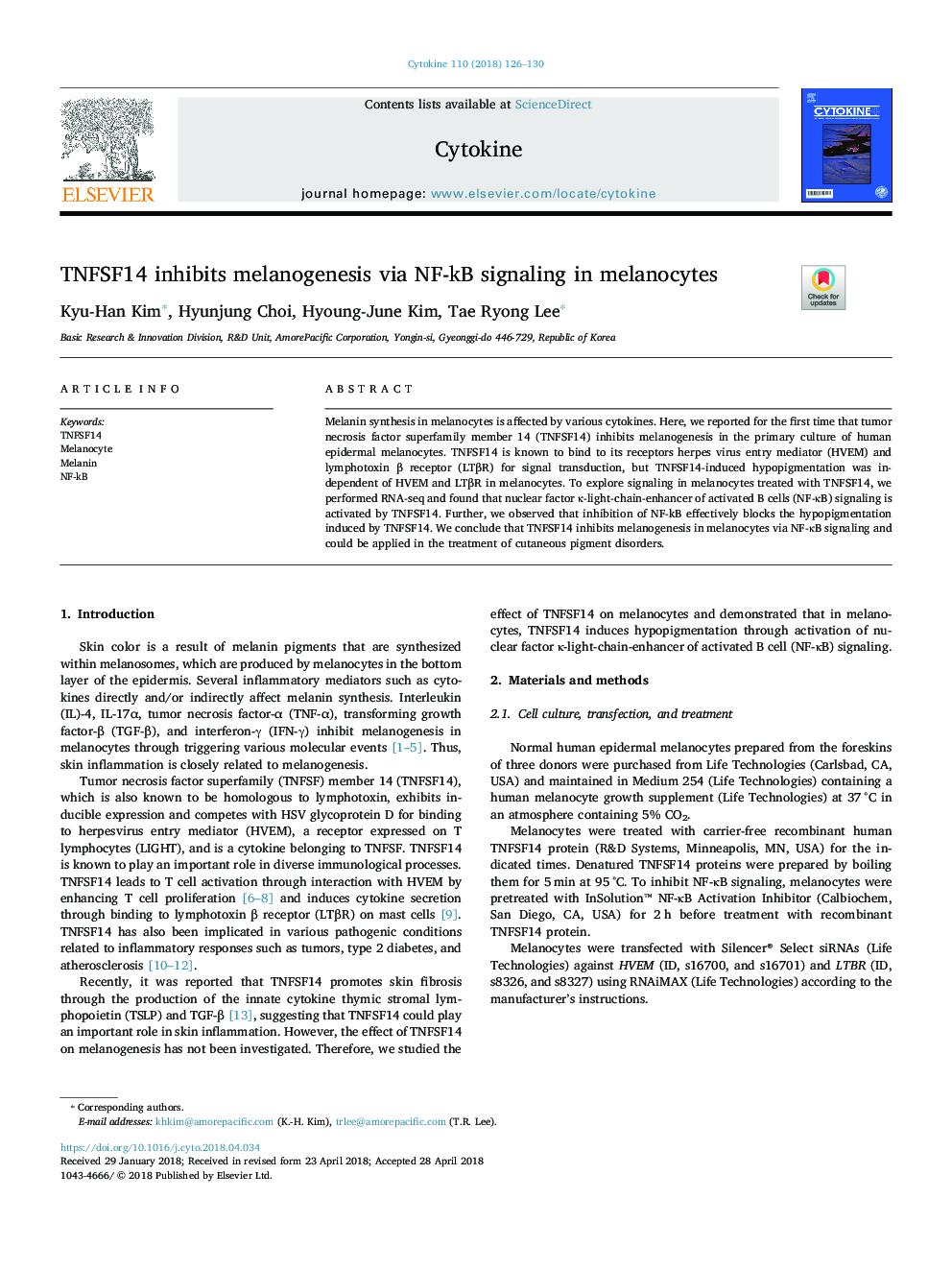| Article ID | Journal | Published Year | Pages | File Type |
|---|---|---|---|---|
| 8628779 | Cytokine | 2018 | 5 Pages |
Abstract
Melanin synthesis in melanocytes is affected by various cytokines. Here, we reported for the first time that tumor necrosis factor superfamily member 14 (TNFSF14) inhibits melanogenesis in the primary culture of human epidermal melanocytes. TNFSF14 is known to bind to its receptors herpes virus entry mediator (HVEM) and lymphotoxin β receptor (LTβR) for signal transduction, but TNFSF14-induced hypopigmentation was independent of HVEM and LTβR in melanocytes. To explore signaling in melanocytes treated with TNFSF14, we performed RNA-seq and found that nuclear factor κ-light-chain-enhancer of activated B cells (NF-κB) signaling is activated by TNFSF14. Further, we observed that inhibition of NF-kB effectively blocks the hypopigmentation induced by TNFSF14. We conclude that TNFSF14 inhibits melanogenesis in melanocytes via NF-κB signaling and could be applied in the treatment of cutaneous pigment disorders.
Keywords
Related Topics
Life Sciences
Biochemistry, Genetics and Molecular Biology
Endocrinology
Authors
Kyu-Han Kim, Hyunjung Choi, Hyoung-June Kim, Tae Ryong Lee,
